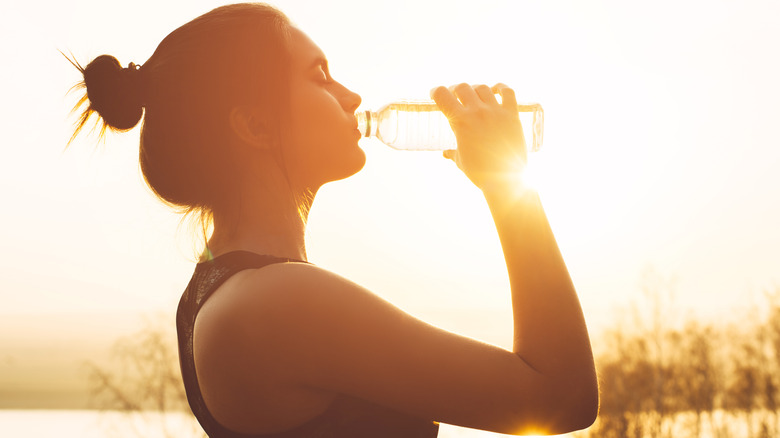
Sanitizing and disinfecting are two different things. Sanitizing reduces the number of germs on a surface, while disinfecting kills the germs. Sanitizing is usually done using chemicals, while disinfecting is usually done using heat. So, what’s the real difference between sanitizing and disinfecting? Sanitizing reduces the number of germs on a surface, while disinfecting kills the germs. Sanitizing is usually done using chemicals, while disinfecting is usually done using heat. The main difference between sanitizing and disinfecting is that sanitizing reduces the number of germs on a surface, while disinfecting kills the germs. Sanitizing is usually done using chemicals, while disinfecting is usually done using heat. Sanitizing is important because it reduces the number of germs on a surface, which can help prevent the spread of illness. Disinfecting is important because it kills the germs, which can help prevent the spread of illness. Sanitizing and disinfecting are both important in preventing the spread of illness. However, they are two different things. Sanitizing reduces the number of germs on a surface, while disinfecting kills the germs. Sanitizing is usually done using chemicals, while disinfecting is usually done using heat.
If you're like most people, you probably think that washing your hands is enough to protect you from getting sick. But what you may not realize is that simply washing your hands is not enough to remove all the germs and bacteria that can make you sick. You also need to wipe down surfaces to remove any lingering germs. There are a few key reasons why you should always wipe down surfaces, even if they look clean. First, it's impossible to know how long ago someone last wiped down the surface. If it's been a while, there's a good chance that there are plenty of germs and bacteria waiting to make you sick. Second, even if someone did just wipe down the surface, there's no guarantee that they did a thorough job. There are plenty of nooks and crannies where germs and bacteria can hide, so it's always best to give the surface a good wipe down yourself. Finally, even if the surface looks clean, there's always the possibility that there are invisible germs and bacteria lurking on it. Wiping it down with a disinfectant will ensure that you're not exposed to anything that could make you sick. So, the next time you're in a public place, be sure to wipe down surfaces before you use them. And, of course, always wash your hands thoroughly to protect yourself from the unseen germs and bacteria that could make you sick.

It’s that time of year again. The leaves are changing color, the air is crisp and cool, and everyone is getting sick. But this year is different. This year, we’re dealing with a pandemic. And one of the most common questions we’re hearing is, “Can you get COVID-19 and the flu at the same time?”
The answer is yes, you can. In fact, you can get any combination of respiratory illnesses at the same time. But before you start panicking, there are a few things you should know. First, it’s important to understand that the flu and COVID-19 are both respiratory illnesses. They both cause fever, cough, and shortness of breath. And they’re both spread through droplets from sneezing and coughing. So, if you’re sick with one, it’s not surprising that you might get the other. In fact, it’s quite common. Second, you should know that getting both illnesses at the same time is not necessarily more severe than getting one or the other. The symptoms might be more severe, but the overall prognosis is the same. Third, if you do get both illnesses, it’s important to seek medical attention. This is because the symptoms of one can mask the symptoms of the other. So, if you’re having trouble breathing, or your fever is high, it’s important to go to the hospital. Finally, it’s important to remember that you can take steps to prevent both illnesses. Get a flu shot, wash your hands, and stay home if you’re sick. So, there you have it. Yes, you can get COVID-19 and the flu at the same time. But it’s not necessarily more severe than getting one or the other. And you can take steps to prevent both illnesses.
because they both cause respiratory symptoms, but there are some key differences
When it comes to respiratory illnesses, there are a lot of similarities between the flu and COVID-19. Both can cause fever, coughing, and difficulty breathing. However, there are some key differences that you should be aware of. Here’s a quick rundown of how these two illnesses differ:
For starters, COVID-19 is caused by a new virus (SARS-CoV-2) that we don’t have immunity to, whereas the flu is caused by a virus (influenza) that we’ve been dealing with for centuries. This means that the flu is generally less severe than COVID-19, although there are always exceptions. Another big difference is the incubation period. With the flu, you tend to start feeling sick pretty soon after you’re infected (usually within a day or two). With COVID-19, the incubation period is longer – it can take up to 14 days for symptoms to appear. This means that you can spread the virus for a week or more before you even know you’re sick, which is one of the reasons why it’s so difficult to control. Finally, there are some differences in the symptoms themselves. With the flu, you’re more likely to have a sudden onset of symptoms like fever and muscle aches. With COVID-19, the symptoms tend to be more gradual. And while both illnesses can cause a cough, COVID-19 is more likely to cause a dry, non-productive cough, whereas the flu is more likely to cause a wet, productive cough. So, next time you’re feeling under the weather, pay attention to the symptoms you’re experiencing. If you have a sudden onset of fever and muscle aches, it’s more likely the flu. But if you have a gradually worsening cough and difficulty breathing, it’s more likely COVID-19. Either way, it’s always best to err on the side of caution and see a doctor if you’re not sure.

We all know that water is essential for our survival. What many of us don’t know, however, is that the type of water we drink can have a significant impact on our health. So, what’s the best type of water to drink? Is bottled water better for you than tap water? Let’s take a closer look. The Truth About Tap Water
Most of us grew up being told that tap water is perfectly safe to drink. We were told that the government regulates the quality of our water supply and that we shouldn’t worry about drinking tap water. Unfortunately, that’s not the whole story. Yes, the government does have regulations in place for public water supplies. However, these regulations only apply to a limited number of contaminants. There are thousands of other potential contaminants that are not regulated by the government. This means that your tap water could be contaminated with all sorts of harmful chemicals and you would never know it. What’s more, even if your tap water meets all of the government regulations, that doesn’t mean it’s free of contaminants. Water treatment facilities are not perfect and they can sometimes miss contaminants. The Truth About Bottled Water
Now, let’s take a look at bottled water. Many people believe that bottled water is the safest option because it’s regulated by the government. However, that’s not necessarily true. While it’s true that the FDA does regulate bottled water, their regulations are not as strict as the EPA’s regulations for tap water. In fact, the FDA only requires bottled water companies to test for a handful of contaminants. What’s more, the FDA only requires bottled water companies to test their water once a week. This means that there could be contaminants in your water that the company doesn’t even know about. So, Is Bottled Water Better For You Than Tap Water? The answer to this question is not a simple yes or no. The truth is, it depends. If you’re concerned about the quality of your tap water, you may want to consider drinking bottled water. However, you should also be aware of the potential risks of drinking bottled water. If you’re going to drink bottled water, make sure to do your research and choose a brand that you trust. Conclusion
At the end of the day, the best water to drink is the water that you feel comfortable with. If you’re concerned about the quality of your tap water, bottled water may be the best option for you. Just make sure to do your research and choose a brand that you trust.
Most people believe that the best way to stay hydrated is to drink eight glasses of water a day. However, many don't realize that they can get just as much hydration from other sources, like fruit juice, tea, and even coffee. So, is tap water really the top choice? There are a few things to consider when making your decision about what to drink. First, think about what you're looking for in a beverage. If you're just looking to stay hydrated, any of the aforementioned beverages will do the trick. However, if you're looking for something to quench your thirst and give you a little boost of energy, coffee or tea might be a better option. Second, think about the quality of the water you're drinking. If you're concerned about the quality of your tap water, there are filters that can remove impurities. However, filtered water can be just as expensive as bottled water, so it's important to weigh your options. Finally, think about the environmental impact of your choice. Tap water is the most sustainable option, as it doesn't require any packaging. However, if you're looking for a more eco-friendly option, consider investing in a reusable water bottle and filling it up with filtered tap water. So, what's the verdict? Is tap water the top choice? It depends on your individual needs and preferences. However, there's no denying that tap water is a great option for staying hydrated.